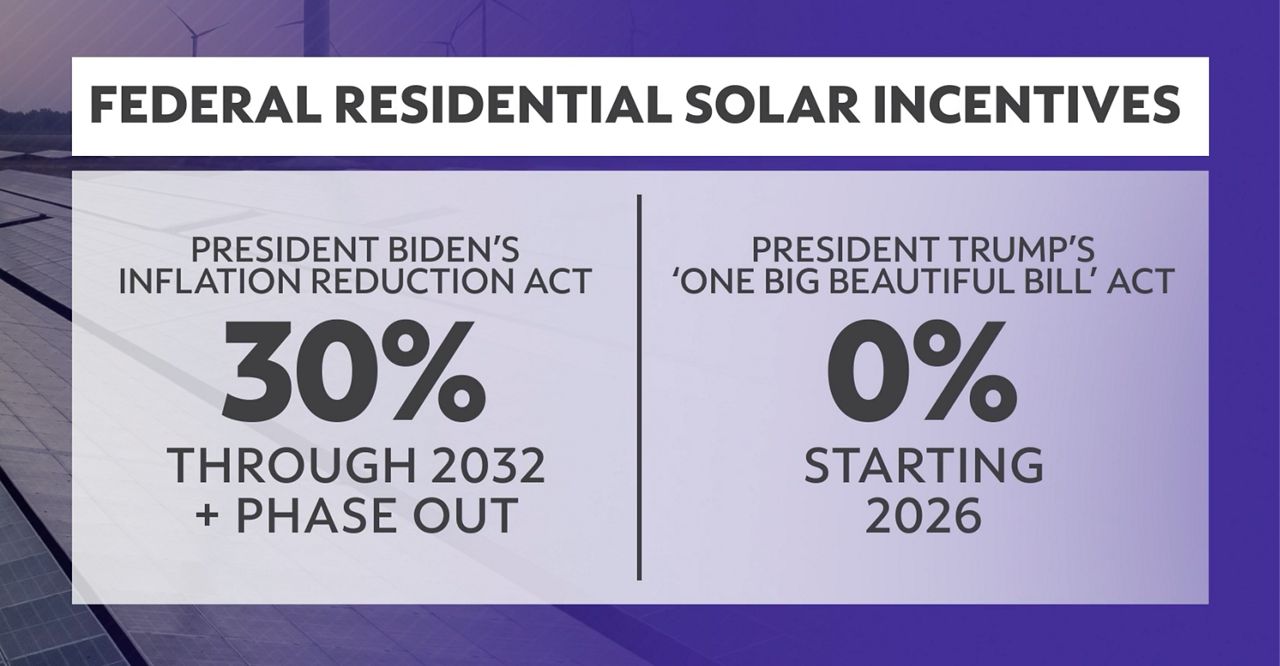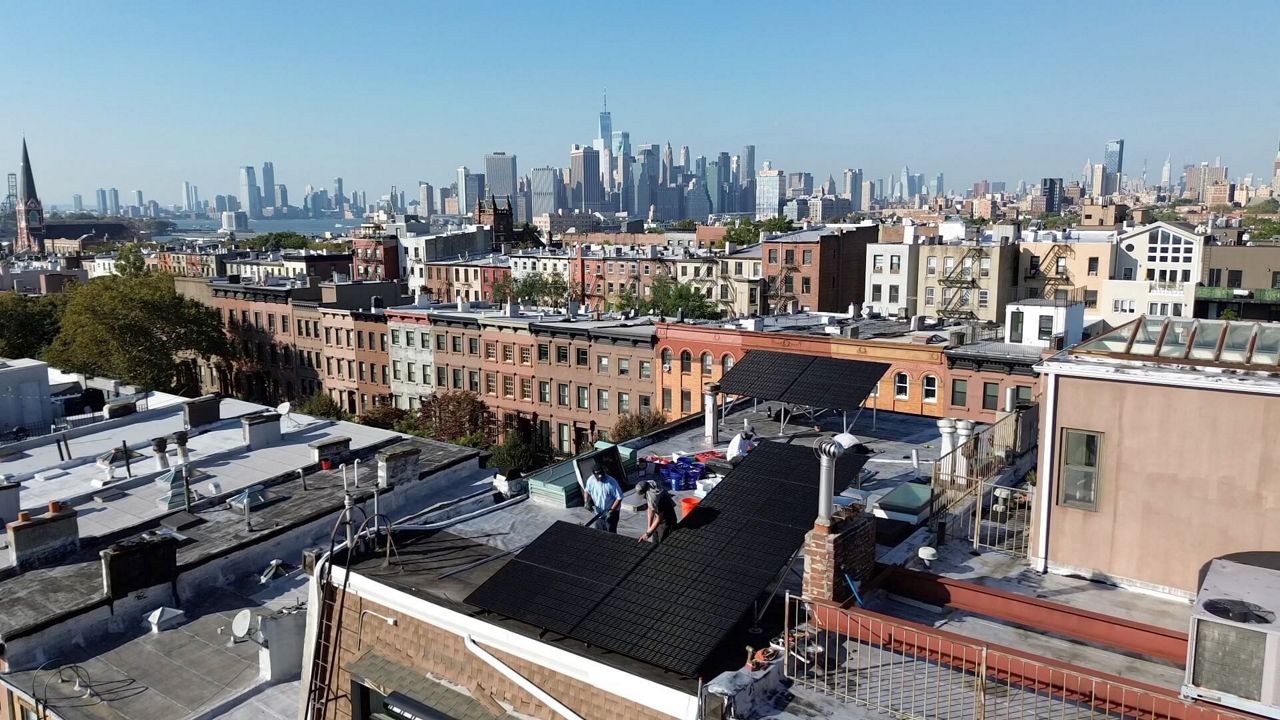The outlook for solar power is suddenly a bit cloudy.
The Republican megabill that President Donald Trump signed into law this month eliminates a federal tax credit for residential solar power projects years ahead of schedule, cutting them off at the end of 2025.
In New York, some companies that install solar power systems are seeing a sudden surge in demand as consumers rush to act — but are preparing for it to be short-lived.
“A lot of people are sort of almost panic buying, in a way,” said T.R. Ludwig, the CEO of Brooklyn SolarWorks.
What You Need To Know
- President Donald Trump’s ‘One Big Beautiful Bill,’ which he signed into law earlier this month, eliminates a federal tax credit for residential solar power projects years ahead of schedule, cutting them off at the end of 2025
- T.R. Ludwig, the CEO of a Brooklyn-based solar company, told Spectrum News that while his business is bustling now as homeowners look to take advantage of the 30% tax credit before it expires, he is getting ready for a potential slow down come January
- New York solar industry advocates are calling for the state to help fill the void by re-evaluating its solar initiatives and weighing other options, such as permitting reform. However, a spokesperson for Gov. Kathy Hochul said in a statement, “We will not be able to backfill all the cuts coming out of Washington”
The tax credit enables homeowners that install a solar power system to recoup a percentage of the cost. Legislation signed by then-President Joe Biden — the so-called Inflation Reduction Act — increased the credit to 30% and mandated it be available through 2032, before phasing out.
But the sweeping tax and spending package that President Trump signed into law at the beginning of July bumped up the tax credit’s expiration date by several years, ending it for residential homes at the end of this December.
Ludwig told Spectrum News that while his business is bustling now as homeowners look to take advantage of the credit before it expires, he is getting ready for a potential slow down come January. He said he is trying to find ways to rein in costs, emphasizing he hopes to avoid laying off any of his 80 employees.
“We’ve worked really hard over the past ten years to build an awesome team, and so it will be super painful if we do have to cut back the team. But you know, that may be a reality,” he said.

The Republican-crafted federal changes came just months after the New York Public Service Commission redirected hundreds of millions of dollars away from a state-level solar incentive program. A commission spokesperson said the program already helped the state meet a key solar energy goal of six gigawatts ahead of schedule and under budget, freeing up funding for other affordability efforts.
In a statement, spokesman James Denn said, “With these changes we will be able to redirect ratepayer funds to other crucial policy matters, including critically needed energy affordability programs, and provide funds to incentivize 500 megawatts of additional solar projects that directly benefit low-income customers above our statewide goals.”
Now, with just months left until the federal solar tax credits go away, New York solar industry advocates are calling for the state to help fill the void by re-evaluating its solar initiatives and weighing other options, such as permitting reform.
“Right now, there’s a lot of anxiety in our industry,” said Noah Ginsburg, executive director of the New York Solar Energy Industries Association.
“Unfortunately, we have seen some companies lay off staff, some companies belt-tightening, thinking about just what’s coming. And with reduced federal support, unfortunately, that means reduced project development, reduced investment,” he added.
A spokesperson for Gov. Kathy Hochul, in a statement, touted New York’s efforts to build out the renewable energy sector and blasted the GOP-crafted federal law.
“The White House, aided by our state’s Republican delegation, is intent on taking us backwards at a time when energy affordability is a top priority and demand is rising. We are looking into all the impacts, but as the governor has said, we will not be able to backfill all the cuts coming out of Washington,” Ken Lovett, Hochul’s senior communications advisor on energy and environment, said in the statement.
